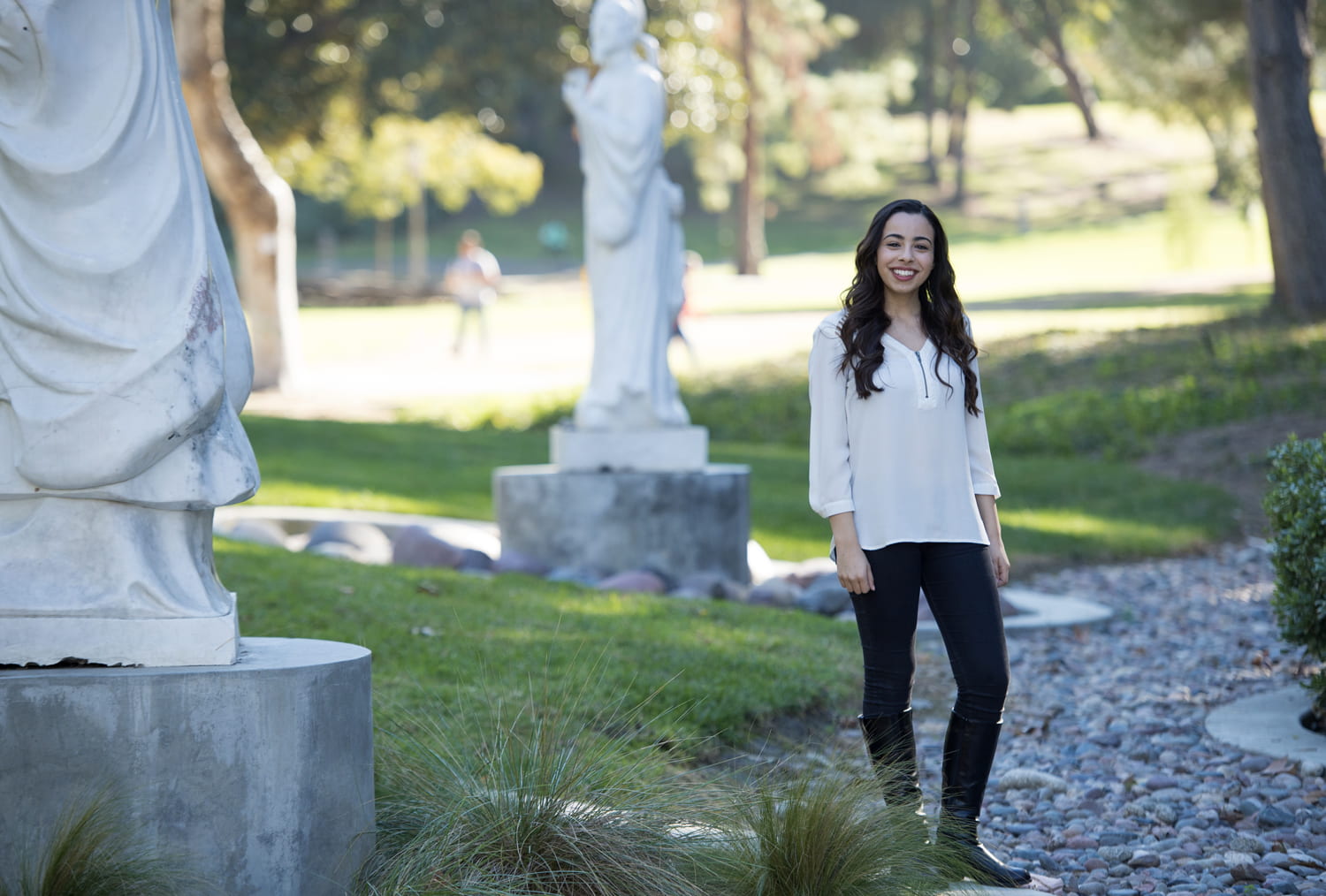Fighting poverty, protecting the planet
Heather Goldsworthy hopes to show that economic development and environmental protection can coexist

Heather Goldsworthy knows microfinance loans can change lives, but at what cost to the environment?
The social ecology doctoral candidate recently spent time in Uganda where she saw fishermen plying the waters of Lake Victoria and locals selling charcoal bundles at outdoor markets. Microfinance loans, which provide funds to help poor people grow very small businesses, support these entrepreneurial efforts but also contribute to overfishing and leveling of forests.
Goldsworthy’s goal is to introduce sustainable development into microfinance lending, an idea she says would protect livelihoods and the environment.
“Farmers and fishermen in Uganda are so reliant on nature, and their activities put them in contact with the environment in the most intricate and intimate ways,” she said. “This reliance on natural resources creates an even more urgent need for sustainable development.”
Goldsworthy hopes to influence microfinance executives in the U.S. to introduce “green” technology loans to Africa and other parts of the world. She envisions solar panels used as heat sources for stoves and rainwater catchment systems that allow people to collect and consume clean water and sell it to others in the community.
“I understand that the environment is often a secondary consideration to economic development, especially in some of the world’s poorest communities,” Goldsworthy said. “But these measures would raise the quality of life in the long term.”
A fellow at the Center for Unconventional Security Affairs, Goldsworthy knows that conducting research abroad is crucial to understanding environmental security. However, travel and research costs dissuade many students from moving beyond the classroom.
“Funding is the monkey on our back at all times,” she said. “You’ve got to be dedicated and pursue all of your funding options.”
One way CUSA supports students like Goldsworthy is through fundraising efforts such as the annual Human Security Award Ceremony on Wednesday, Oct. 29, at the Irvine Barclay Theatre. Center directors hope to raise up to $50,000, all of which will support student travel and research.
Goldsworthy wants to continue her research in either Uganda or Rwanda because travel has changed her worldview.
“I’ve always excelled in biology, chemistry and physics and planned on being a medical doctor,” she said. “But now I see that the planet needs doctors too, so to speak.”
